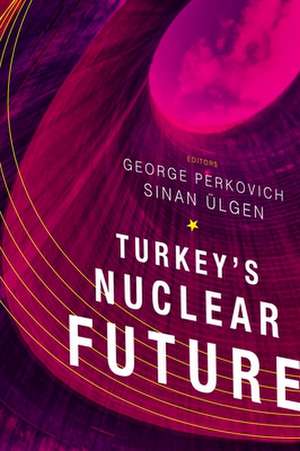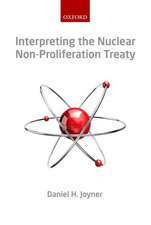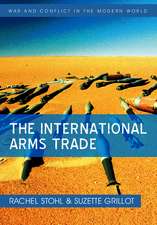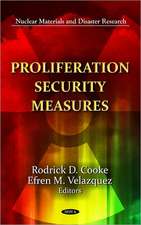Turkey's Nuclear Future
Editat de Sinan Ülgen, George Perkovichen Limba Engleză Paperback – 20 mar 2015
Turkey, with a robust modern economy and growing energy needs, is pursuing a switch to nuclear power. But that shift is occurring in an environment fraught with security challenges: Turkey borders Iraq, Syria, and Iran—all states with nuclear or WMD ambitions or capabilities. As a NATO member, Turkey also hosts U.S. nuclear bombs on its territory, although some question the durability of this relationship. This dynamic has naturally led to speculation that Turkish leaders might someday consider moving beyond a civilian course to develop nuclear weapons. Yet there has been remarkably little informed analysis and debate on Turkey's nuclear future, either within the country or in broader international society. This volume explores the current status and trajectory of Turkey's nuclear program, adding historical perspective, analytical rigor, and strategic insight.
Preț: 113.19 lei
Nou
Puncte Express: 170
Preț estimativ în valută:
21.67€ • 23.54$ • 18.21£
21.67€ • 23.54$ • 18.21£
Carte disponibilă
Livrare economică 31 martie-14 aprilie
Preluare comenzi: 021 569.72.76
Specificații
ISBN-13: 9780870034152
ISBN-10: 0870034154
Pagini: 248
Dimensiuni: 152 x 229 x 15 mm
Greutate: 0.41 kg
Editura: Brookings Institution Press
Colecția Carnegie Endowment for Int'l Peace
ISBN-10: 0870034154
Pagini: 248
Dimensiuni: 152 x 229 x 15 mm
Greutate: 0.41 kg
Editura: Brookings Institution Press
Colecția Carnegie Endowment for Int'l Peace
Notă biografică
George Perkovich is vice president for studies at the Carnegie Endowment for International Peace. Sinan Ülgen is a visiting scholar at Carnegie Europe in Brussels, a founding partner of Istanbul Economics, and chairman of the Center for Economics and Foreign Policy Studies in Istanbul.
Descriere
Turkey, with a robust modern economy and growing energy needs, is pursuing a switch to nuclear power. But that shift is occurring in an environment fraught with security challenges: Turkey borders Iraq, Syria, and Iran—all states with nuclear or WMD ambitions or capabilities. As a NATO member, Turkey also hosts U.S. nuclear bombs on its territory, although some question the durability of this relationship. This dynamic has naturally led to speculation that Turkish leaders might someday consider moving beyond a civilian course to develop nuclear weapons. Yet there has been remarkably little informed analysis and debate on Turkey's nuclear future, either within the country or in broader international society. This volume explores the current status and trajectory of Turkey's nuclear program, adding historical perspective, analytical rigor, and strategic insight.















